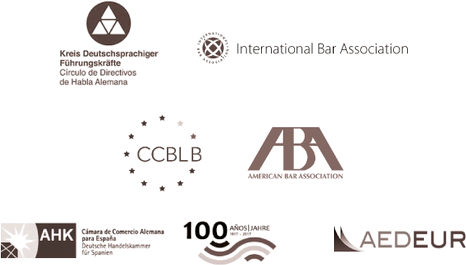
Regional competition watchdogs cast a cold eye on public tenders
01/04/16
Regional competition authorities keep a particularly watchful eye on public procurement procedures. Some weeks ago we blogged about the fine that Basque Competition Authority imposed for market sharing in the Basque Country’s public school canteens market – now the Catalan Competition Authority (ACCO) struck in the healthcare sector.
The ACCO has fined four companies in the sector between 30,000 and 600,000 euros for sharing the market for physical and speech therapy services provided in the outpatient and house assistance mode by the Catalan Health Service (CatSalut), tendered in 2012 (File Number 57/2014, Fisiogestión). The file was opened on the basis of information provided by the Antifraud Office of Catalonia.
Until 2006, the CatSalut procured the therapy services from different providers in the local area covered by each lot. Since, it required bidders to provide all necessary therapy services within the area covered by a lot. Furthermore, the awardee must have at least one physical establishment in such area (which needs an administrative authorisation and must comply with certain quality standards) and accept fluctuations in the award price of up to 50% during the life of the contract.
In November 2012, Fisioterapia, S.A.; Centre d’Accidents Laborals i Rehabilitació Gramenet, S.L.; Centre de Rehabilitació l’Eivax, S.A.; and Iriteb, S.A., created a bidding consortium for four of the twenty-eight lots tendered that year.
The ACCO admits that “creating a consortium is not per se an anticompetitive agreement” (so did the national competition authority, CNMC, e.g. in Case S/0014/07, Gestión de Residuos Sanitarios, and the Court of Appeals, e.g. in its judgment of 15 October 2012). However, ACCO thinks that the consortium among the fined companies (i) was not necessary to bid; and (ii) aimed at maintaining the members’ market shares in relation to the previous tender of 2006.
The key issue was the parties’ ability to individually tender for those four lots. The ACCO recalls that any bidder must assess their possibilities to bid for each lot individually. The authority dismisses the aim (i) to be awarded more than one lot; and/or (ii) to provide a higher quality service than the minimum required as justification for anticompetitive conduct. There was no indication that companies which had bid individually at the 2006 tender coulds not do so again in 2012. Indeed, several consortium members did bid alone for other lots at the 2012 tender.
As regards the requirement of having premises in a given area, the ACCO considers that compliance requires no consortium but simply a transfer or rental agreement, which is “non-problematic” from a Competition Law perspective. And as to the price fluctuation of up to 50%, the ACCO states that this does not imply that “resources must be multiplied accordingly.” However, the authority does not give any indication as to how succesful bidders should respond to an increase of demand (which is the most likely reason for increased consideration under the contract).
In light of the above it seems clear that despite general acceptance of consortia under Competition Law companies should be very careful in assessing the convenience and opportunity of joining forces for public tenders. Especially if considering that authorities tend to equate duration of such conduct and the length of the contract awarded.
Rating Legis SLP
T/F: +34 932 724 264
Provença, 253
08008 Barcelona
<!–
Members of:



